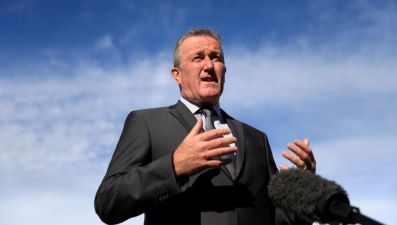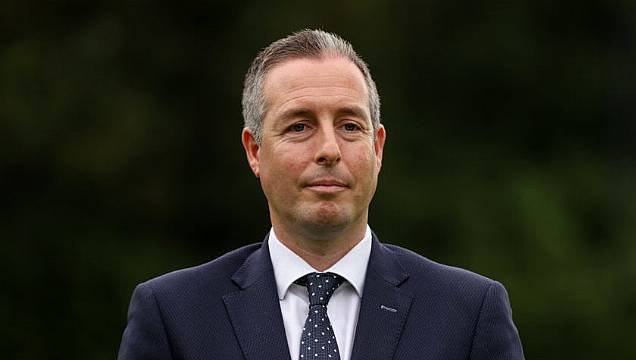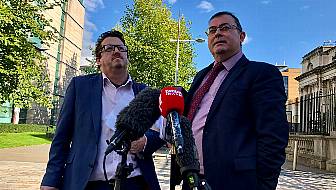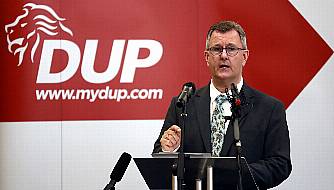The North’s First Minister cannot use his joint office as a shield to hide from a legal challenge against the DUP’s boycott of cross-Border political meetings, a judge has warned.
Mr Justice Scoffield told the High Court he was concerned that Paul Givan and junior minister Gary Middleton are not legally represented in ongoing judicial review proceedings against their party.
Three other DUP ministers named as respondents in the challenge are represented in court: Gordon Lyons, Edwin Poots and Michelle McIlveen.
However, the court has heard that the joint nature of Stormont’s Executive Office means Mr Givan and Mr Middleton cannot be legally represented without the approval of Sinn Féin deputy First Minister, Michelle O’Neill.

Judge Scoffield questioned whether it could seriously be contended that it would be unlawful for the two DUP ministers to have their own legal representation.
“The First Minister, or the deputy First Minister, can’t be entitled to hide behind the joint nature of the office to not participate in proceedings, avoid any duty of candour which arises and then say the court can’t make an order,” he said.
He added: “I don’t think it can be right that the holders of each of those offices can insulate themselves from any legal challenge by simply raising the shield of the joint nature of the office.”
The judge said he had concerns that the “issue will be used to basically negate the court’s supervisory functions”.
Justice Scoffield said there was also the matter of legal fairness and the principle that anyone who is the focus of a court challenge should have the right to properly engage in the proceedings to ensure their position was articulated.
Barrister Dr Tony McGleenan GC, representing the other three DUP ministers, said the issue had never been fully tested before a court, but he said in a legal sense the first and deputy first ministers “don’t exist as individuals”.

The DUP has vowed to disengage from the structures of the North South Ministerial Council (NSMC), apart from meetings on health issues, as part of its protest against Brexit’s Northern Ireland Protocol.
But, last month, Justice Scoffield ruled the DUP position is unlawful following a challenge by Belfast businessman, Sean Napier.
Despite that declaration, the DUP has continued to stay away from previously planned North-South meetings.
Those meetings have been unable to proceed as, under Stormont rules, such meetings with the Irish Government cannot proceed without the participation of both a unionist and a nationalist minister from the Northern Ireland Executive.
Mr Napier has signalled his intent to seek an order from the court mandating the DUP to participate in the meetings.
Justice Scoffield aired his concerns about Mr Givan and Mr Middleton’s lack of legal representations at a review hearing ahead of a full hearing of the arguments on the ongoing boycott on November 16th.
The judge heard that the Departmental Solicitors Office had provided documents to the court outlining certain procedures around the scheduling of cross border meetings.
However, the judge was told that not all the relevant information held by the Executive Office had been provided to the court – again due to the failure to secure the joint agreement of the First Minister and deputy First Minister.
Justice Scoffield said the court was “still in the dark” over the details for forthcoming meetings planned for the end of the November and questioned whether further information could be obtained from the Executive Office.

Another review hearing is set to be convened next week to further discuss issues around legal representation and disclosure of papers.
After Friday’s hearing, Mr Napier’s solicitor Paul Farrell, from McIvor Farrell, said: “What began as a political stunt has now developed into a focused analysis into the obligations of the First Minister and deputy First Minister, both to each other and their joint office responsibilities.
“Our client is of the firm view that the DUP ministers and leadership are in breach of the court’s previous declaration.”







